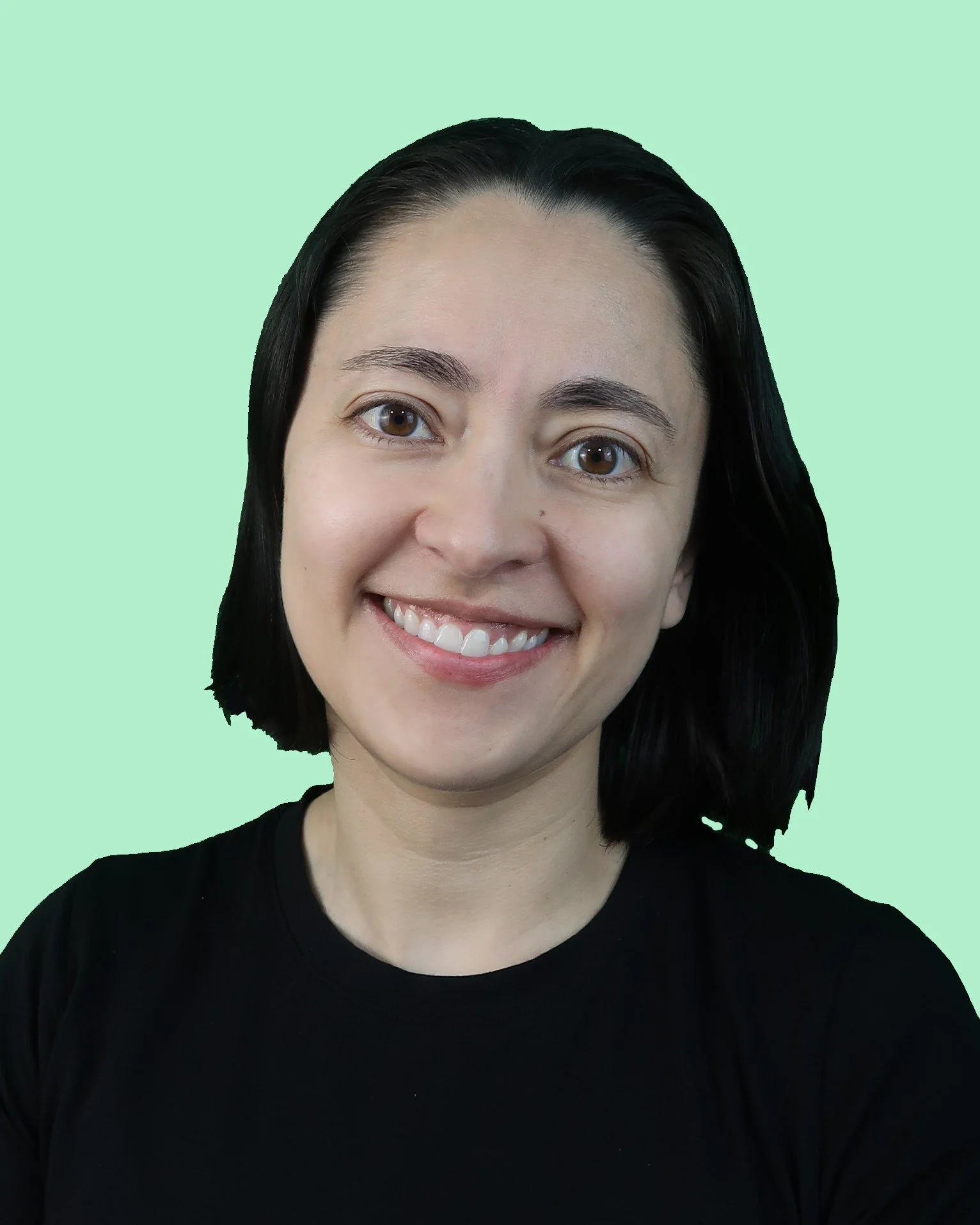AuDHD/ADHD Coach
Risa helps late-diagnosed and high-masking ADHD and AuDHD adults move from overwhelm to clarity. As a neurodivergent coach herself, she combines trauma-informed support with strategies grounded in nervous system science—so you can build self-trust, strengthen resilience, and thrive in both life and work.
Why Neurodiversity-Affirming Support Matters
Finding support that truly honors your neurotype can be hard. Many therapists and healthcare providers lack a nuanced understanding of neurodivergence—especially for those who are high-masking or late-diagnosed. The result? Feeling misunderstood, pathologized, or dismissed.
That’s where neurodiversity-affirming care makes a difference.
As a neurodivergent coach, I don’t just understand ADHD, autism, or sensory sensitivities intellectually—I live them. I don’t see these traits as disorders to be “fixed.” They are natural variations in the human brain and nervous system. These differences become disabling when the world expects you to function in ways that don’t accommodate your needs. Trauma often accompanies neurodivergence, which can make life feel overwhelmingly complex.
My coaching is grounded in simple truths: your brain isn’t broken, there are no bad parts, and you don’t need to become “normal” to thrive. You deserve support that helps you build a life around your strengths, your needs, and your values.
1:1 Adult AuDHD/ADHD Coaching Program with Risa
Program Details:
Length: 12 weeks
1:1 Coaching Sessions (weekly)
In-between sessions, asynchronous messaging through a messenger app to provide accountability and additional support
Custom action plans and goal-setting
Educational training on nervous system regulation
Parenting
Parenting as a neurodivergent adult is layered. Your own wounds may get triggered, and your strong-willed, often neurodivergent child needs you to be their steady anchor. I help you regulate your nervous system, break cycles of reactivity, and nurture your child’s strengths so they can thrive as their authentic self — all while making sure your needs are honored too.
Relationships
Many late-diagnosed adults struggle with knowing what their needs are, let alone expressing them. This can lead to masking, people-pleasing, or simmering resentment. I help you identify, honor, and communicate your needs so you can build relationships rooted in safety, authenticity, and mutual respect.
Career
For neurodivergent adults, work struggles often go deeper than just “time management.” Perfectionism, procrastination, and task paralysis can keep you stuck — even when you know what needs to get done. I help you untangle these patterns so you can work with your brain (not against it) and create a career path that feels sustainable and aligned.
Thriving as You
You’ve carried the weight of shame, masking, and self-doubt for so long. This is your space to exhale, release old stories, and come home to yourself. When you stop hiding and start living as your full self, everything shifts — you find clarity, confidence, and the freedom to create a life that finally feels like yours.
Q&A:
-
Nervous system-led
My coaching starts with educating my clients about the nervous system and how its states affect their thoughts, behaviors, and beliefs. You’ll learn to recognize your body’s different nervous system states and build tools and the capacity to move between them safely and with awareness.
Compassionate exploration of your protective patterns
We’ll look at the parts of you that once learned to keep you safe and meet them with curiosity and compassion, not shame. Because self-compassion is where real transformation begins.
I am currently a student of the Compassionate Inquiry approach. CI is a psychotherapeutic approach developed by Dr. Gabor Maté and Sat Dharam. Dr Gabor Maté and Sat Dharam have no liability for how I use this approach in our sessions.
Building Somatic Awareness
By bringing your attention to your body, we gently rebuild your relationship with your sensations and emotions, so they can guide you, support your healing, and help you rebuild self-trust.
-
When you feel overwhelmed, it is often because you are undersupported. The coach-client relationship is vital to developing lasting change because it provides the social support needed for behavioral changes to be sustainable and for new neural pathways to form. Coaching helps you maintain motivation, make a plan, stay on course, and get back on track when inevitable lapses occur (Espinosa-Salas and Gonzalez-Arias 2023).
If you struggle with emotional regulation and executive functioning, support and safety can help you reach your goals and tackle the stressors of everyday life. My mission is to create a safe space for you to explore and connect with your feelings, needs, and intuition. Change happens when we feel safe enough to step towards an unfamiliar path. Read the “About Risa” section to see how coaching transformed my life.
If you're interested in learning more about the investment and determining if my program is a good fit for you, book a free discovery call!
Espinosa-Salas, S., & Gonzalez-Arias, M. (2023). Behavior Modification for Lifestyle Improvement. In StatPearls. StatPearls Publishing.
-
Both coaching and therapy support personal growth, resilience, and skill-building. The key difference is that therapy addresses and diagnoses mental health conditions, while coaching does not. Therapists are trained to treat mental health disorders. Coaches, on the other hand, focus on helping individuals identify strengths, clarify goals, and take actionable steps toward change.
I see coaching as an essential system of support—especially when you're ready to move from insight into action. Coaching helps you integrate what you know into everyday choices and behavior shifts. For many people, working with both a therapist and a coach can be a powerful combination: therapy to support mental health, and coaching to support growth, self-trust, and behavioral change.
In coaching, we work as equals. You are the expert on your inner world, and my role is to provide a safe, nonjudgmental space where you can reconnect with your intuition, explore all parts of yourself, and discover tools that support your unique brain and nervous system. When your body feels safe and supported, the answers and solutions already within you can finally emerge — and new possibilities come into view.
-
You do not have to be officially diagnosed with ADHD and/or autism to work with me. The best way to see if we are a good fit is to book a discovery call.
About Risa
On the outside, I looked like I had it all together — professor, master’s degree in biology, family, home. But inside, I was exhausted from running, always feeling like I was falling behind. No matter how much I achieved, it was never enough. I was never enough.
I spent years struggling with procrastination, perfectionism, and burnout — unaware these were signs of ADHD and autism. Later, I also discovered I have aphantasia — my brain doesn’t form mental images — and suddenly, my lifelong struggles with executive functioning made sense. Even after years of therapy and countless books on psychology, ADHD, and autism, I still felt stuck. Parenting added another layer of challenge. I often felt overwhelmed and guilty, unsure how to meet my children’s needs while managing my own.
Everything shifted when I started working with an ADHD coach. Through compassionate, trauma-informed coaching, nervous system regulation, and somatic practices, I finally experienced what it felt like to be safe in my own body. For the first time, I slowed down and realized my patterns — procrastination, people-pleasing, hyper-independence — weren’t flaws. They were my body’s way of protecting me. I was never broken.
That realization changed everything. Healing isn’t just about understanding your past — it’s about building safety, trust, and connection in the present. This ongoing work is what inspired me to become a life coach.
Today, I create neurodiversity-affirming spaces for late-diagnosed ADHD and AuDHD adults to do the same: rebuild safety, reconnect with their bodies, and move forward without leaving themselves behind. It’s possible to build nourishing relationships, thrive in life and career, and be the parent your children truly need.
I’m a queer, nonbinary person, a proud LGBTQ+ ally, and a mother of two young children. Outside of coaching, I love traveling, good food, and recharging in nature.
With all my compassion,
Risa






